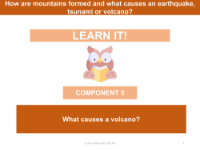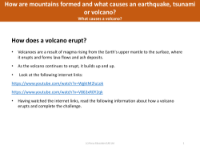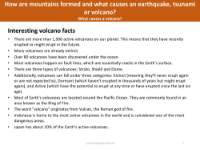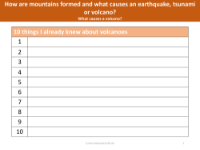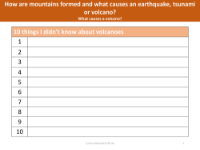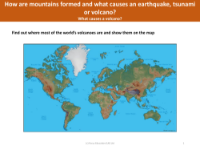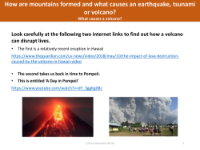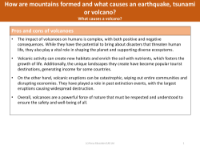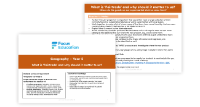Pros and cons of volcanoes - Worksheet
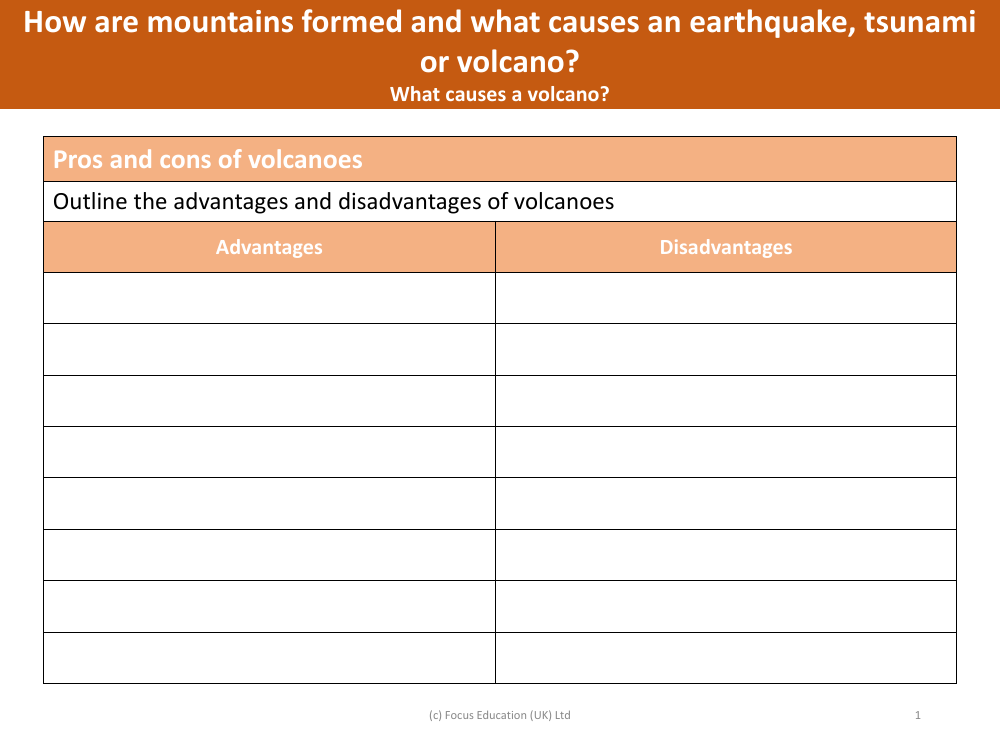
Geography Resource Description
The worksheet on the pros and cons of volcanoes prompts students to think critically about the dual nature of volcanic activity. On one hand, the advantages of volcanoes include the formation of mountains, which can contribute to the creation of diverse ecosystems and landscapes. Volcanic soil is often very fertile, leading to prosperous agriculture in surrounding areas. Additionally, volcanic activity can lead to the formation of precious minerals and geothermal energy resources. On the other hand, the disadvantages of volcanoes are significant and can pose serious threats to life and property. Eruptions can cause widespread destruction, leading to loss of life, displacement of populations, and damage to infrastructure. Secondary effects such as earthquakes, tsunamis, and the release of hazardous gases can further exacerbate the impact on both local and global scales.
The worksheet also encourages students to explore the mechanisms behind the formation of mountains and what triggers natural disasters like earthquakes, tsunamis, or volcanic eruptions. It seeks to deepen the learners' understanding of the causes of a volcano, which involves the movement of tectonic plates and the build-up of pressure from molten rock beneath the Earth's surface. By examining these geological processes, students can appreciate the powerful forces that shape our planet and the complex interplay between beneficial and destructive aspects of volcanism.
